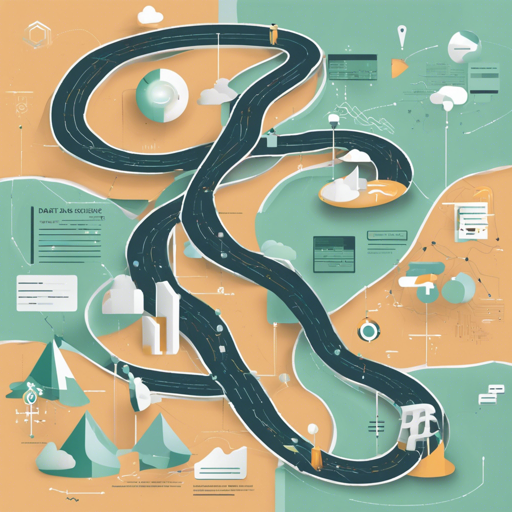Embarking on the journey into the field of Data Science can feel like charting a course through uncharted waters. Luckily, the 2024 Data Science Roadmap serves as our compass, guiding us through this vast and exciting landscape. In this blog, we will break down the steps to follow this roadmap with easy-to-understand instructions, helpful tips, and troubleshooting ideas.
Understanding Data Science: A Brief Overview
Before diving into the tools and technologies, it’s essential to understand the core of Data Science, Data Analytics, and Data Engineering. Just as you wouldn’t start a journey without understanding your destination, knowing these definitions will help frame your learning path:
- Data Science: Think of Data Science as an artist who looks at a blank canvas (raw data) and asks the right questions to create an artwork full of insights. It involves a multidisciplinary approach, utilizing mathematics, statistics, and computer science to analyze data creatively.
- Data Analytics: This is akin to a historian, gathering and interpreting past events (existing data) to derive actionable insights and optimize business processes. It often includes data cleaning and visualization techniques.
- Data Engineering: Consider this as the architect who designs and constructs a sturdy house (data infrastructure) to support the data needs of a business. This role involves creating pipelines and managing storage solutions for data.
Steps to Follow the Data Science Roadmap
The roadmap is segmented into three primary phases: Beginner, Intermediate, and Advanced. Let’s break them down:
1. Beginner Phase
Start with foundational courses to understand basic data analysis, tools, and techniques. Here’s what you’ll need to cover:
- Familiarize yourself with Python or R for data analysis.
- Learn about descriptive and inferential statistics.
- Delve into data cleaning and visualization tools like Pandas and Matplotlib.
2. Intermediate Phase
Once comfortable, shift focus to more complex topics:
- Explore Machine Learning techniques, enhancing your programming skills.
- Understand statistical concepts such as Probability, Linear Algebra, and Calculus.
- Develop skills in web scraping and using APIs to collect your own datasets.
3. Advanced Phase
Here, you refine your knowledge and tackle sophisticated concepts:
- Master Deep Learning using frameworks like TensorFlow and PyTorch.
- Explore Natural Language Processing (NLP) and machine learning model deployment.
- Engage in real-world projects to apply what you’ve learned.
Tools to Prepare Your Workspace
Setting up the right tools is crucial. Some recommended tools include:
- Anaconda – A toolkit for writing and running code.
- Google Colab – A cloud-based notebook without local installation requirements.
- PyCharm – A powerful IDE for Python.
Troubleshooting Your Data Science Journey
As with any journey, you will likely encounter roadblocks. Here are some common issues and solutions:
- Stuck on a concept? Don’t hesitate to revisit foundational resources like statistics and algorithms.
- Limited access to tools? Utilize cloud-based platforms like Google Colab.
- Feeling overwhelmed with certifications? Focus on practical projects instead of chasing titles.
For more insights, updates, or to collaborate on AI development projects, stay connected with fxis.ai.
Final Thoughts
At fxis.ai, we believe that such advancements are crucial for the future of AI, as they enable more comprehensive and effective solutions. Our team is continually exploring new methodologies to push the envelope in artificial intelligence, ensuring that our clients benefit from the latest technological innovations.
Remember, the journey into Data Science is not a sprint but a marathon. Embrace each learning phase, and you’ll soon become proficient in navigating the vast seas of data!

